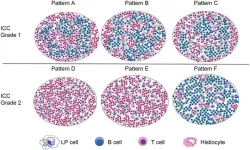(Press-News.org) CLEVELAND, Ohio (August 14, 2024)—With more than 24 million people globally living with dementia without a cure in sight, there is a lot of focus on ways to prevent and delay cognitive impairment. A new study suggests that severe menopause symptoms such as hot flashes and depression can negatively affect cognitive function in postmenopausal women. Results of the study are published online today in Menopause, the journal of The Menopause Society.
In conjunction with our aging population, dementia diagnoses are on the rise. It is estimated that 4.6 million new cases are diagnosed every year, which translates into one person being diagnosed with dementia every 7 seconds. That means dementia cases are expected to double every 20 years, reaching 81.1 million by 2040.
The good news is that medical experts estimate that 40% of cases of Alzheimer disease, the most common form of dementia, can be prevented or, at minimum, delayed. Because of this fact, there is a lot of interest in identifying risk factors. Recent research has focused on the importance of estradiol in female cognitive aging. Because the menopause transition is characterized by a decline in estrogen, postmenopausal women are at an increased risk of dementia.
A new study involving nearly 1,300 late-postmenopausal women from nine Latin American countries suggests that severe menopause symptoms such as hot flashes, sleep, and mood disturbances were linked with cognitive impairment. Whether effectively treating hot flashes with hormone therapy or other approved therapies can help improve cognition in the form of memory, attention, language, and executive function, is unknown.
Based on these results, the researchers concluded that there is intricate interplay between hormonal, lifestyle, and sociodemographic factors involved with cognitive health.
Study results are published in the article “Severe menopausal symptoms linked to cognitive impairment: an exploratory study.”
“This study showed a potential link between severe menopause symptoms and cognitive impairment in midlife women. The results also suggest a protective effect of lower body mass index, higher educational level, physical exercise, hormone therapy use, and sexual activity on cognition, highlighting the potential for targeted interventions to protect and preserve cognitive function in menopausal women,” says Dr. Stephanie Faubion, medical director for The Menopause Society.
For more information about menopause and healthy aging, visit www.menopause.org.
The Menopause Society (formerly The North American Menopause Society) is dedicated to empowering healthcare professionals and providing them with the tools and resources to improve the health of women during the menopause transition and beyond. As the leading authority on menopause since 1989, the nonprofit, multidisciplinary organization serves as the independent, evidence-based resource for healthcare professionals, researchers, the media, and the public and leads the conversation about improving women’s health and healthcare experiences. To learn more, visit menopause.org.
END
Severe menopause symptoms may take toll on brain health
New study explores effect of various menopause symptoms, such as hot flashes, on memory, attention, language, and executive function
2024-08-14
ELSE PRESS RELEASES FROM THIS DATE:
Historic map reveals how mussel farm is bringing shellfish reefs back to the seabed
2024-08-14
The UK’s first large scale offshore mussel farm is allowing shellfish reefs to return to parts of the seabed off England’s south coast for the first time in up to 150 years, a new study has revealed.
Researchers have spent the past decade examining the environmental impact of the farm, which was first established in Lyme Bay off the coast of South Devon in 2013.
In that time, the seabed beneath the farm’s ropes has begun to undergo a transformation as mussels from the lines are ...
Power up your health with self-sustaining electronics
2024-08-14
Imagine a coat that captures solar energy to keep you cozy on a chilly winter walk, or a shirt that can monitor your heart rate and temperature. Picture clothing athletes can wear to track their performance without the need for bulky battery packs.
University of Waterloo researchers have developed a smart fabric with these remarkable capabilities. The fabric has the potential for energy harvesting, health monitoring, and movement tracking applications.
The new fabric developed ...
Histopathologic features and differential diagnosis in challenging cases of nodular lymphocyte predominant B-cell lymphoma/Nodular Lymphocyte Predominant Hodgkin Lymphoma
2024-08-14
This review offers an in-depth exploration of Nodular Lymphocyte Predominant Hodgkin Lymphoma (NLPHL), highlighting its distinct characteristics across various domains such as epidemiology, clinical presentation, histopathology, immunophenotype, genetic findings, and challenges in differential diagnosis.
Epidemiology and Clinical Presentation
NLPHL is a relatively rare subtype of Hodgkin lymphoma, comprising approximately 10% of all Hodgkin lymphoma cases. It predominantly affects males, with a higher incidence observed ...
Trojan horse method gives malaria parasites a taste of their own medicine
2024-08-14
More than a quarter of Australians over the age of 50 take cholesterol-lowering drugs to prevent heart disease and strokes, but our bodies also need cholesterol to survive. Now, scientists from The Australian National University (ANU) say its role as a basic building block of life holds the key to treating deadly diseases caused by parasites, including malaria.
The researchers have developed a trojan horse method that tricks malaria parasites into ingesting a fatal dose of drugs by exploiting the parasite’s need for cholesterol to survive. By attaching ...
Singapore scientists discover breakthrough method to activate dormant stem cells in the brain
2024-08-14
Scientists from Duke-NUS Medical School and the Mechanobiology Institute (MBI) at the National University of Singapore (NUS) have discovered a novel pathway to wake up dormant neural stem cells, offering potential new therapies for neurodevelopmental disorders such as autism, learning disabilities, and cerebral palsy.
In the mammalian adult brain, most neural stem cells, which originate from the nervous system and can grow into various types of brain cells, stay dormant until they receive specific signals that activate them. Once woken up, they produce new neurons, aiding in brain repair and growth.
Defects in neural stem cell activation ...
Rare archaeological site reveals ‘surprising’ Neanderthal behaviour at Pyrenees foothills
2024-08-14
An unchartered area in the foothills of the Southern Pyrenees in Spain is providing insights into a poorly known period of Neanderthal history, offering clues that could help archaeologists uncover the mystery of their downfall, according to new research from The Australian National University (ANU).
Abric Pizarro is one of only a few sites worldwide dating from 100,000 to 65,000 years ago during a period called MIS 4. The researchers have gathered hundreds of thousands of artefacts, including stone tools, animal bones and other evidence, providing significant data about the Neanderthal way of life during that time -- largely unknown in human history until now.
The findings ...
How our biases are reflected in how fast we make decisions
2024-08-14
Quick decisions are more likely influenced by initial biases, resulting in faulty conclusions, while decisions that take time are more likely the result in better information, according to new research led by applied mathematicians at the University of Utah.
A team that included Sean Lawley, an associate professor of mathematics, and three former or current Utah graduate students used the power of numbers to test a decision-making model long used in psychology.
They developed a framework to study the decision-making processes in groups of people holding various levels of bias.
“In large populations, what we see is that slow deciders are making more accurate ...
Brigham study finds shingles increased risk of subsequent cognitive decline
2024-08-14
A new study led by investigators from Brigham and Women’s Hospital, a founding member of the Mass General Brigham healthcare system, found that an episode of shingles is associated with about a 20 percent higher long-term risk of subjective cognitive decline. The study’s findings provide additional support for getting the shingles vaccine to decrease risk of developing shingles, according to the researchers. Their results are published in Alzheimer's Research & Therapy.
"Our findings show long-term implications of shingles and highlight the importance of public health efforts to prevent and promote uptake of the shingles vaccine," said ...
Australians outlive their peers in high income Anglophone countries by 1-4 years
2024-08-14
Australians outlive their peers in 5 high income English speaking countries, including the UK and the US, by between 1 to 4 years, finds an analysis of international longevity data, published in the open access journal BMJ Open.
Most of this advantage accrues between the ages of 45 and 84, with death rates from drug and alcohol misuse, screenable/treatable cancers, and cardiovascular and respiratory diseases all lower, the analysis shows.
While high income countries achieved good life expectancy gains during the 20th century, the trends have been much less favourable in the 21st century, even before the COVID-19 pandemic, note ...
Lack of purpose and personal growth may precede mild cognitive impairment
2024-08-14
Feeling that your life lacks purpose and that there are few opportunities for personal growth in older age may precede the development of mild cognitive impairment (MCI), a frequent precursor of dementia, suggests research published online in the Journal of Neurology Neurosurgery & Psychiatry.
These aspects of psychological wellbeing noticeably decline 2 to 6 years before MCI is diagnosed, even in the absence of evident signs, and irrespective of whether those affected go on to develop dementia, the findings ...
LAST 30 PRESS RELEASES:
Antifibrotic drug shows promise for premature ovarian insufficiency
Altered copper metabolism is a crucial factor in inflammatory bone diseases
Real-time imaging of microplastics in the body improves understanding of health risks
Reconstructing the world’s ant diversity in 3D
UMD entomologist helps bring the world’s ant diversity to life in 3D imagery
ESA’s Mars orbiters watch solar superstorm hit the Red Planet
The secret lives of catalysts: How microscopic networks power reactions
Molecular ‘catapult’ fires electrons at the limits of physics
Researcher finds evidence supporting sucrose can help manage painful procedures in infants
New study identifies key factors supporting indigenous well-being
Bureaucracy Index 2026: Business sector hit hardest
ECMWF’s portable global forecasting model OpenIFS now available for all
Yale study challenges notion that aging means decline, finds many older adults improve over time
Korean researchers enable early detection of brain disorders with a single drop of saliva!
Swipe right, but safer
Duke-NUS scientists identify more effective way to detect poultry viruses in live markets
Low-intensity treadmill exercise preconditioning mitigates post-stroke injury in mouse models
How moss helped solve a grave-robbing mystery
How much sleep do teens get? Six-seven hours.
Patients regain weight rapidly after stopping weight loss drugs – but still keep off a quarter of weight lost
GLP-1 diabetes drugs linked to reduced risk of addiction and substance-related death
Councils face industry legal threats for campaigns warning against wood burning stoves
GLP-1 medications get at the heart of addiction: study
Global trauma study highlights shared learning as interest in whole blood resurges
Almost a third of Gen Z men agree a wife should obey her husband
Trapping light on thermal photodetectors shatters speed records
New review highlights the future of tubular solid oxide fuel cells for clean energy systems
Pig farm ammonia pollution may indirectly accelerate climate warming, new study finds
Modified biochar helps compost retain nitrogen and build richer soil organic matter
First gene regulation clinical trials for epilepsy show promising results
[Press-News.org] Severe menopause symptoms may take toll on brain healthNew study explores effect of various menopause symptoms, such as hot flashes, on memory, attention, language, and executive function





